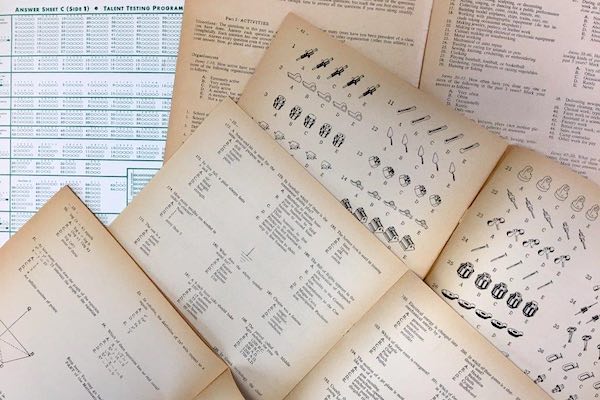In 1960, the students of Fellsmere High School in Fellsmere became part of a landmark study called Project Talent.
The Fellsmere teenagers joined more than 400,000 others from across the country, including 12,200 students from 25 schools in Florida. Project Talent presented a snapshot of a generation coming of age on the cusp of a new era. It was the most comprehensive study of American high school students ever conducted and included students from all walks of life and every racial and ethnic group.
This week, 58 years since the original study was launched, participants will be sent a questionnaire and asked to take part in a follow-up study designed to learn how their lives have unfolded over the past five decades.
Over two full days in the spring of 1960, Project Talent assessed the aptitudes and abilities, hopes and expectations of high school students from 1,353 schools across the country. The goal was to identify the unique strengths and interests of America’s young people and to ensure they were being guided into careers that would make the best use of their talents. Follow-up studies collected information on occupations, family formation, education, and health.

The study was originally developed by the American Institutes for Research (AIR) and funded by the United States Office of Education. The National Institutes of Health funds the new Alzheimer’s study.
Project Talent is the only large-scale, nationally representative study that tracks participants from adolescence to retirement age. It helps us understand how experiences, environments, genetics, and behaviors combine to make us who we are and influence how we age. The new follow-up study will have a special focus on memory and cognitive health in an effort to develop evidence-based policies to combat the looming Alzheimer’s crisis.
The National Institute on Aging reports that by 2050, the number of Americans living with Alzheimer’s disease will more than triple, reaching 16 million. The cost of caring for sufferers will exceed $1 trillion annually.
The new study is seeking to include the experiences Project Talent participants who identified in 1960 as belonging to a racial or ethnic minority. Researchers wish to understand the health disparities that exist between minority and non-minority groups and to examine the long-term effects of attending racially segregated versus integrated schools.
According to Susan Lapham, Project Talent’s Director, “These findings will be important in informing current health policy. Segregation in schools has been increasing in recent years but we know little about the potential long-term impact on health in later life.”
“The Project Talent generation has contributed to important research in the past five decades,” continued Lapham. “Now, they have the opportunity to help us address some of the most pressing public health concerns currently facing our country.”
In 1960, Project Talent was remarkable for the diversity of its participants, who represented every facet of American life. Researchers have designed the new Project Talent study to be just as diverse. Members of Fellsmere High School classes of 1960-1963 who are asked to participate in the 2018 study are strongly encouraged complete the survey and share their experiences with researchers.
Participants can contact Project Talent on 1-866-770-6977 or you can also visit the Project Talent website.


